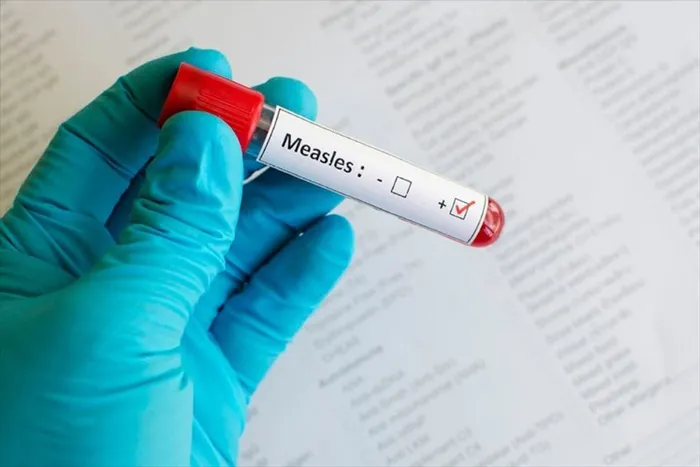Over 50 cases of German measles in NC

File picture
WITH 52 confirmed cases of German measles, also known as rubella, in the Pixley sa Seme District, the Northern Cape Department of Health has advised community members to ensure that their children who are five years old or younger have been immunised against the virus.
The department said 22 cases of rubella were detected in Philipstown, 17 cases in Hopetown and a further 13 cases were confirmed in De Aar.
According to the manager of Communicable Disease Control in the Northern Cape, Gloria Hottie, rubella is an illness mostly found in children and can be prevented if children are vaccinated against the virus.
Hottie said adults and children who have never been vaccinated against the virus can fight it through natural immunity.
“Children or adults who contract the virus are those who have never been vaccinated against it. By the age of five, young children whose immunisation records are up to date are usually vaccinated against the virus. Those who contract the virus are those who have defaulted in their immunisation,” said Hottie.
ALSO READ: German measles outbreak at NC school
“Rubella is a mild illness and can wear off within a week or two (seven to 14 days). There is no treatment available for those who contract the virus, but people’s natural immunity can fight it off and they will never contract it again once they have recovered. It is the same as in the case of chicken pox.”
She added that the rubella virus is spread in the same manner as Covid-19 and also has the same precautionary measures.
“Rubella is transmitted through droplets. This means that if a person is in close contact with someone who has rubella and the rubella sneezes or droplets of saliva enter the person who does not have the virus, the virus is then spread that way.
“It takes 12 to 24 days for the virus to develop in the system once it is contracted. The same as Covid-19, it is advised that people isolate for 17 days, practise social distancing and practise handwashing as well as sanitising hands and surfaces.
“The signs of someone who might have contracted rubella are that the patient will have a rash on the face and neck. Some people will have a rash on their entire body. They will also have flu-like symptoms, such as a runny nose, cough, headaches, a sore throat and pink eyes. In such cases it is advisable to consult a doctor or go to the nearest clinic.”
Hottie warned that rubella can be fatal to pregnant women and newborn babies.
“Rubella is a danger to pregnant women and their unborn babies or to newborn babies that are less than one month old. If a pregnant woman contracts the virus, she can transfer the virus to the unborn baby through the placenta. The baby will then be born with rubella.”
She said vaccination is not possible once the virus has been contracted.
“If a child or adult has signs of rubella or has already contracted the virus, they cannot be administered with the vaccine. We do not administer vaccines to people who are sick. Vaccines are preventative. If you have any flu-like symptoms, or rash or swollen glands, health workers will need to conduct tests to determine whether it is indeed rubella. They, however, cannot administer a vaccine to someone who is not healthy.”
Hottie said the Covid-19 outbreak had compromised the immune systems of many people and also some parents have defaulted in taking their children for their immunisation appointments.
“Before the outbreak of Covid-19, there was never a high number of rubella cases. There were very low to no cases in the Province. Due to people’s fear of Covid-19, many parents and guardians did not take their children to their local clinics for their immunisation as some were afraid of contracting Covid-19 at the clinics. That has resulted in many children not receiving their vaccines.
“During Covid-19, people also wore masks and practised social distancing as well as constant hand washing, as well as sanitising of surfaces and hands. These are the same measures that should be implemented with rubella.
“Households were also in isolation and were not exposed to viruses. Non-exposure to viruses has resulted in our immunity going down. We were ‘too sterile’ and our immune systems were not exposed to non-fatal viruses which our immune systems can easily fight.”
She added that the department will host a vaccination drive in Pixley ka Seme.
“We have had vaccine drives for measles for young children and human papillomavirus (HPV) vaccine drives for young girls. We will have vaccinations in Pixley ka Seme at schools and clinics and educate residents in that district about the virus.
“Residents in other parts of the Province whose children have not been immunised against rubella, can study their children’s Road to Health cards and take them to the clinic if they have missed their immunisation,” Hottie advised.